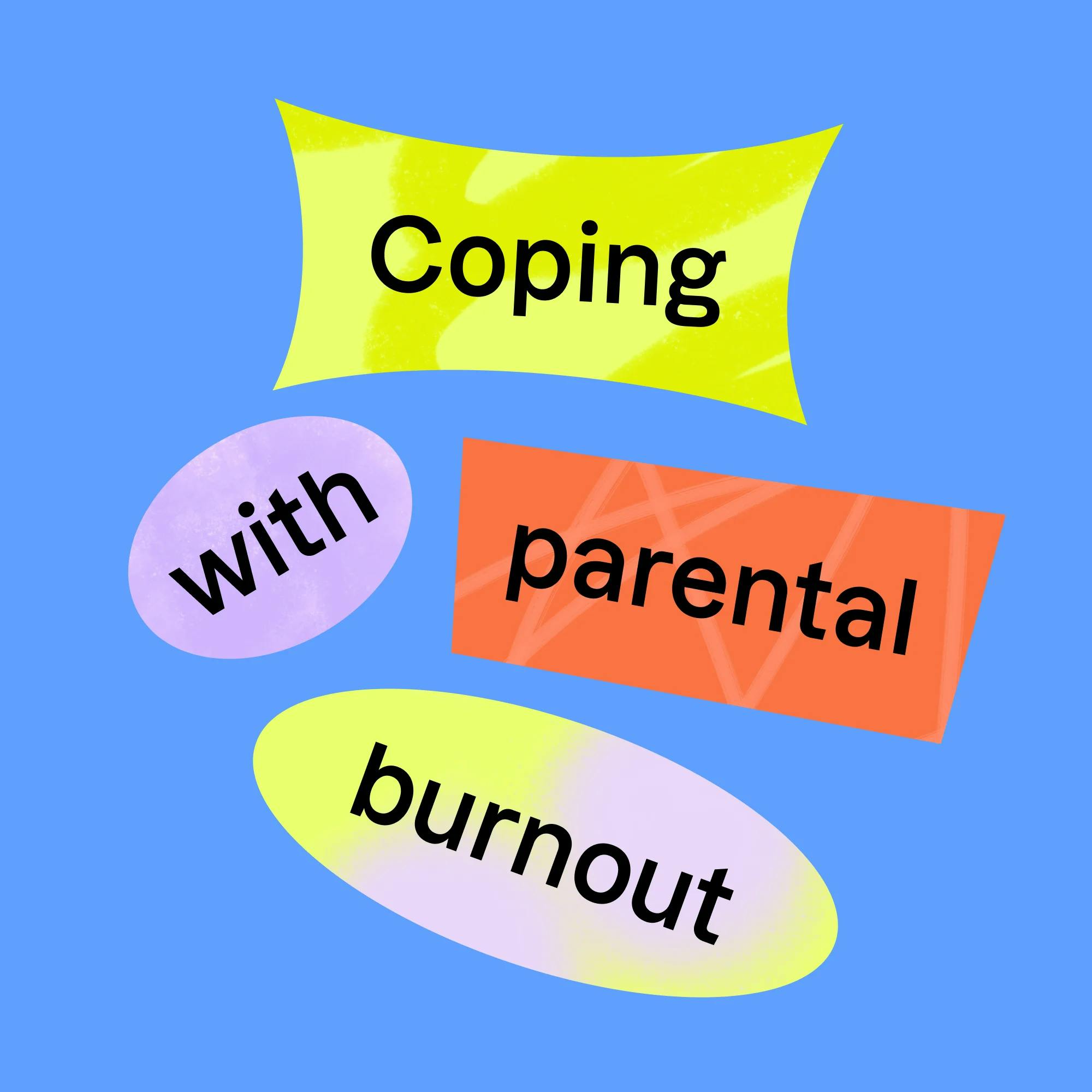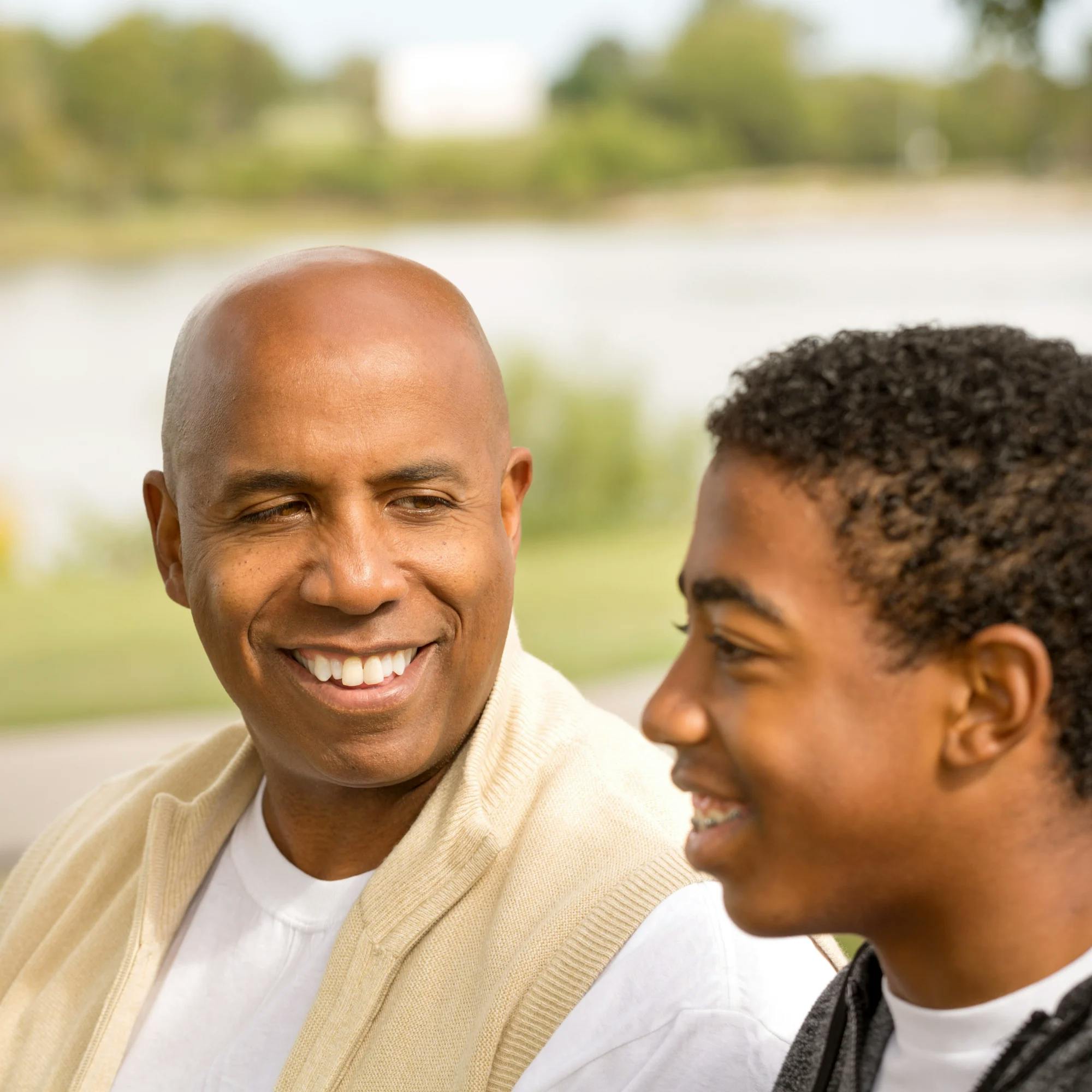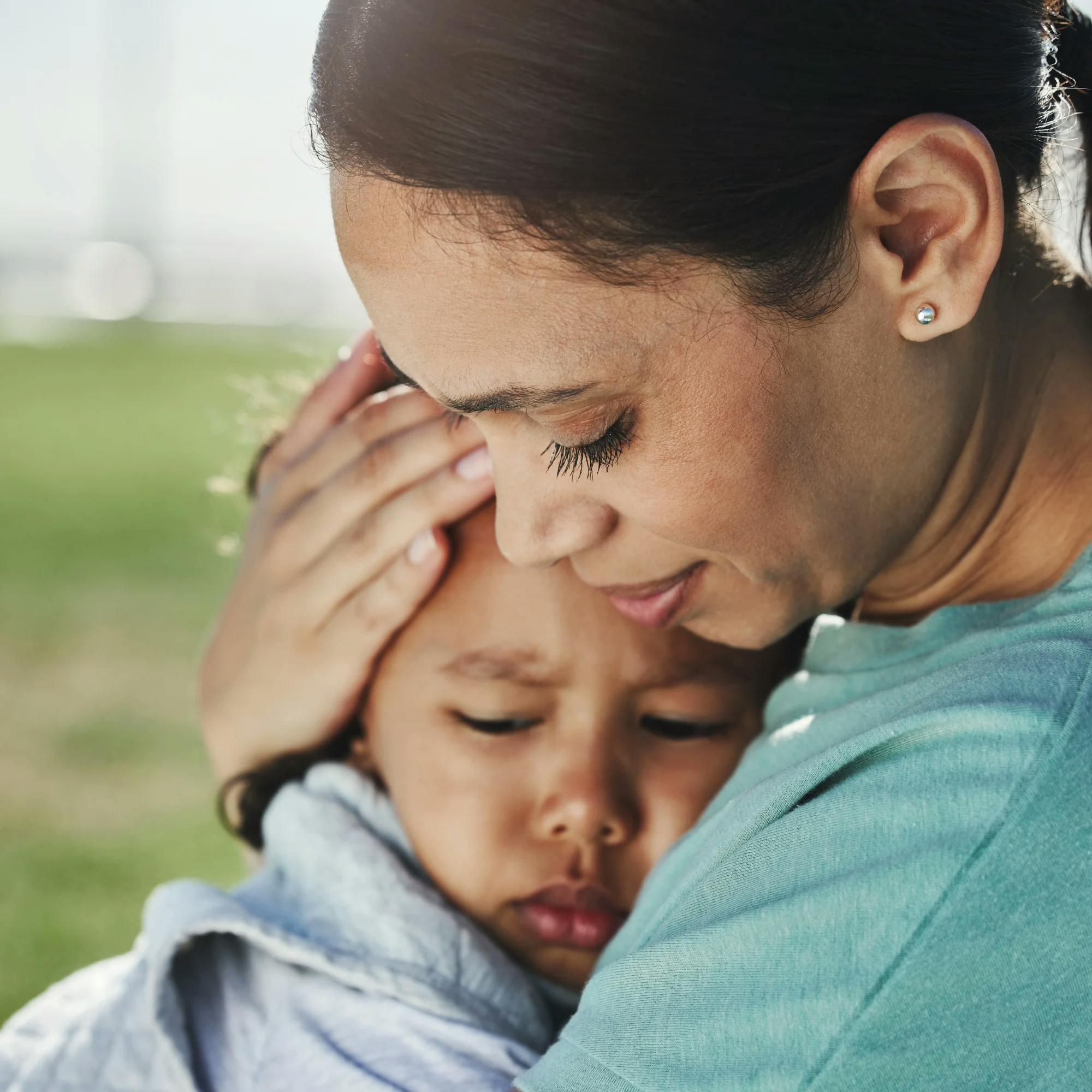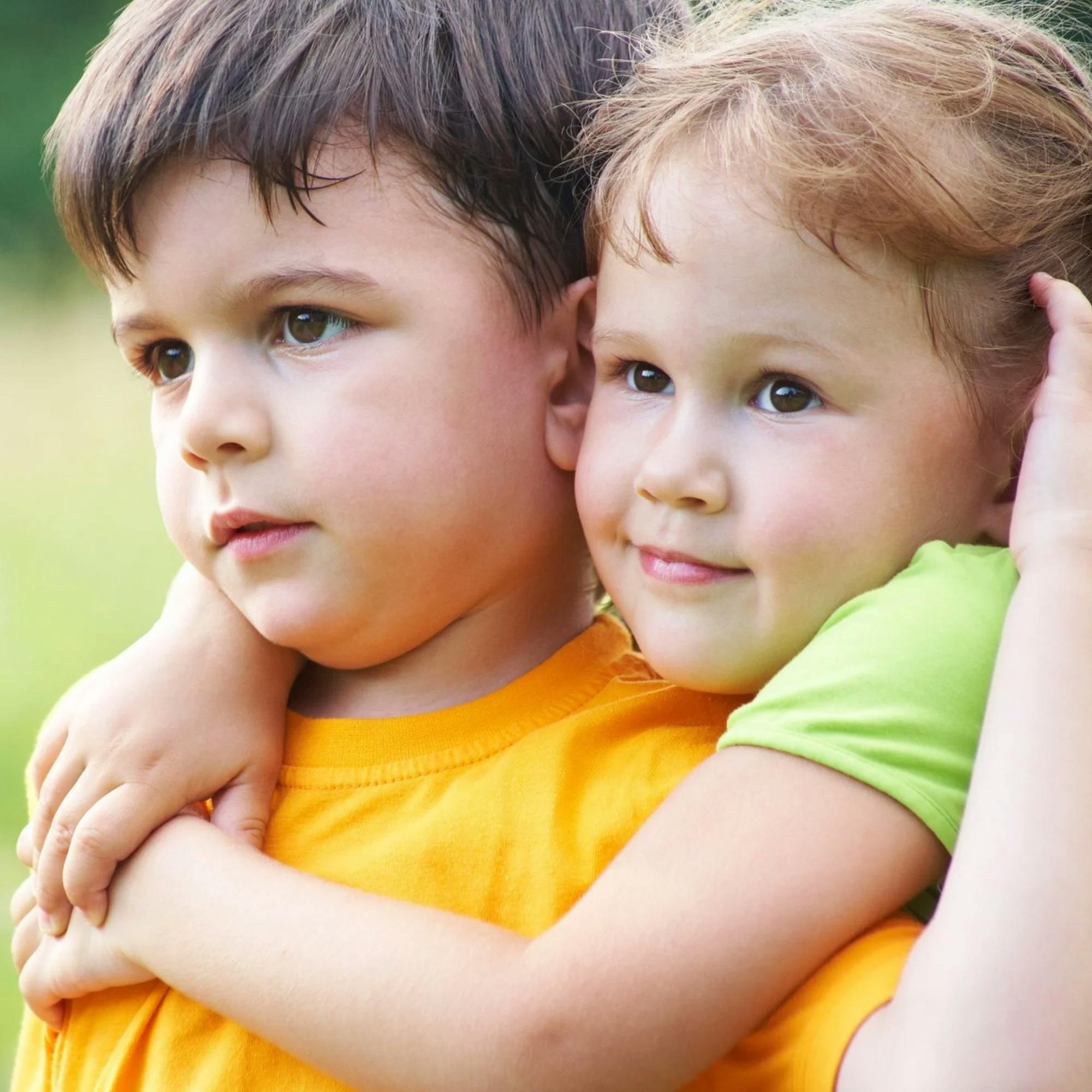It would be nice if raising tiny humans was all sunshine and rainbows, wouldn’t it? Social media is full of images of creative crafting and whimsical picnics, but this perfect, peaceful world isn’t the reality of everyday parenting. As much as we’d all love to slow down for sweet, focused moments with our kids, there are busy schedules to balance–and often big emotions and behaviors to handle.
On any given day, you may be managing work, school assignments, sports and lessons… and enforcing screen-time rules or breaking up sibling fights. It’s easy to lose your patience. With mindful parenting, we try to develop awareness, empathy, and the ability to respond instead of react.
There are so many instances when choosing to be mindful and calm can make a big difference in your relationship with your kids. Let’s explore what mindful parenting is, how it helps, and how to do it in real life.
What is mindful parenting?
Mindful parenting is a way of interacting with your child that focuses on what’s happening in the moment. The idea is that you don't worry about the future, wonder what it all means, or try to change your child’s behavior. You simply notice what’s happening and respond to it.
Here’s an example. Say your child is having a meltdown at the grocery store because they can’t have a certain cereal. Instead of raising your voice or snapping at them, you would get down on their level and respond to what’s happening. You can show empathy and say, “I see you’re upset” or “It’s OK to feel sad. You need to get up now, but it’s OK to feel upset. ”
This type of response doesn’t mean you give in to your child’s tantrum. Rather, you’re empathizing with the feelings they’re expressing.
This type of response doesn’t mean that you give in to your child’s tantrum. You’re still not buying the cereal! Rather, you’re empathizing with the feelings they’re expressing. You’re trying to see the situation from their perspective. This helps your child feel heard and understood.

Another big part of mindful parenting is working to keep your own emotions in check. Notice how you’re feeling in that moment in the grocery store. Frustrated, embarrassed, worried? Your emotions are valid, but you don’t have to let them control you. The goal is to notice your emotions, then let them pass without acting on them.
Understand where your emotions might be coming from
Our response to negative behavior from our children is sometimes related to our own experiences growing up. For example, when you were a child, perhaps you got in trouble with your parents for acting hyper, misbehaving in restaurants, or “talking back.”
As adults, we still remember these situations. And sometimes, when our kids do similar things, it can send us into a response mode that mimics what we experienced as children.
This article from the Gottman Institute describes why this can happen: “Our bodies and brains are wired to react to high stress situations as a safety net. If our brain perceives a threat, it signals the amygdala, the body’s ‘alarm’ system, which tells our body to act without thinking. The amygdala responds to situations with the fight, flight, or freeze response. This is to protect us, but our stress receptors cannot distinguish between real dangers or false dangers.
“In everyday parenting, our stress response often gets triggered unnecessarily by events that are not actually life threatening. Our bodies are reacting to our kid spilling cereal all over the floor in the same way we would react if we were being chased by a bear.”
Does this resonate with you? As caregivers, we can choose to parent mindfully instead of automatically acting on a negative reaction to our kids’ behavior. We won’t always be perfect at it, but over time we can improve and grow. And so will our relationships with our kids!


Why is mindful parenting important?
There are many benefits to becoming a more mindful parent, for both you and your child!
Kids that grow up in a home with mindful parenting:
Gain better emotional regulation skills and better social decision-making skills
May be more secure, patient, and cooperative with peers and others
Have improved relationships with their parents
Will likely be better at working through conflict with other people as they get older
When you practice mindful parenting, you will:
Gain more insight into your own thoughts and feelings
Improve your emotional regulation skills, therefore helping your child’s
Likely become less critical of yourself and your child
Likely decrease how often you react impulsively


4 ways to practice mindful parenting
Here are some practical ways you can begin trying mindful parenting.
1 Listen to your child
Make time to do this without distractions. What your child is feeling is real to them. So it’s important to be empathetic and have a listening ear.
2 Focus on trying to understand both your and your child’s emotional needs
What are your triggers, or your child’s? Notice what makes your child feel safe. What helps them calm down and feel more regulated? Is it a hug from you, a drink of water, or maybe physical movement of some kind?
3 When a tough situation happens, take a moment to notice and regulate your own emotions
Slow down and focus on your body and breath. Walk out of the room for a minute if it’s safe to leave your child alone. Do what you need to do to achieve a state of calm. Your calm response will help your child calm down, too.
4 Try to accept yourself and your child as you are, with compassion and without judgment
Recognize that everyone makes mistakes sometimes. When that happens, everyone deserves some grace.


What to do when it doesn’t go according to plan
When you or your child is having a tough day, don’t get discouraged. You are re-learning how to interact with your kids in stressful situations, as well as how to model being a calm and regulated person. You won’t always get it right. But that’s not a reason to stop trying!
Give yourself grace. If you lose your patience with your child, apologize and ask them for forgiveness. You can say, “I know I yelled. I shouldn’t have done that. I’m sure that was scary for you. I’m so sorry.” Taking a moment to repair the situation and give a hug can go a long way in building a strong relationship with your child.
How Expressable Can Help
Concerned your child isn't reaching age-expected milestones? Looking for communication support from a professional? Expressable is a national online speech therapy practice serving children and adults. We treat all major areas of communication and feeding, offer flexible hours including evenings and weekends, and accept most major health insurance plans. We’re proud to have earned more than 3,000 5-star reviews from our clients (4.9/5 average).
Our therapy model is centered on parent and caregiver involvement. Research proves that empowering caregivers to participate in their loved one’s therapy leads to better outcomes. That’s why we combine live, 1-on-1 speech therapy with personalized education and home practice activities for faster progress.
Communication is more than words. It’s how we share how we feel and show who we are. We’re here to help you or your child do just that.

 Abby Barnes, M.S., CCC-SLP
Abby Barnes, M.S., CCC-SLP












